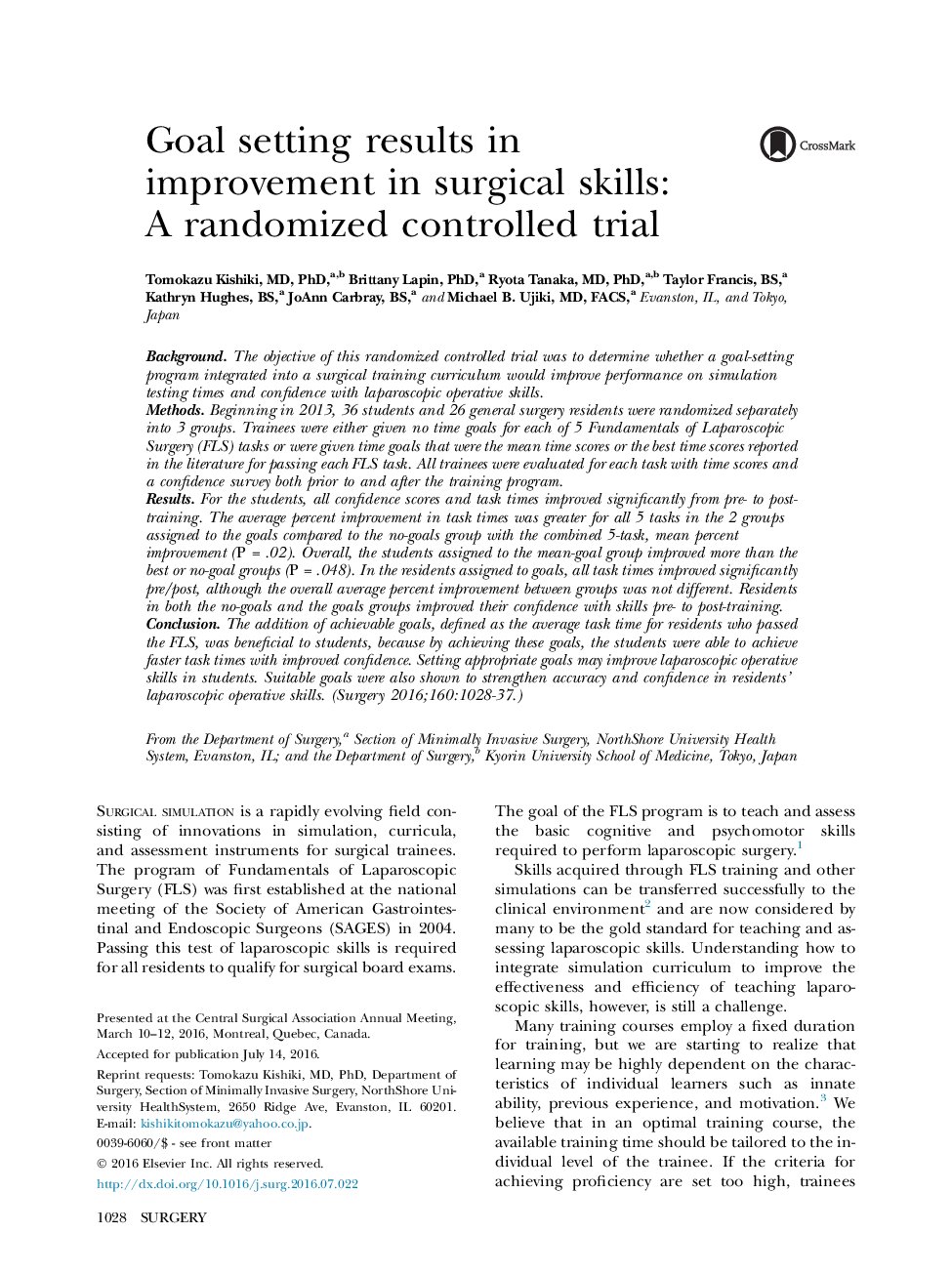| Article ID | Journal | Published Year | Pages | File Type |
|---|---|---|---|---|
| 4306374 | Surgery | 2016 | 10 Pages |
BackgroundThe objective of this randomized controlled trial was to determine whether a goal-setting program integrated into a surgical training curriculum would improve performance on simulation testing times and confidence with laparoscopic operative skills.MethodsBeginning in 2013, 36 students and 26 general surgery residents were randomized separately into 3 groups. Trainees were either given no time goals for each of 5 Fundamentals of Laparoscopic Surgery (FLS) tasks or were given time goals that were the mean time scores or the best time scores reported in the literature for passing each FLS task. All trainees were evaluated for each task with time scores and a confidence survey both prior to and after the training program.ResultsFor the students, all confidence scores and task times improved significantly from pre- to post-training. The average percent improvement in task times was greater for all 5 tasks in the 2 groups assigned to the goals compared to the no-goals group with the combined 5-task, mean percent improvement (P = .02). Overall, the students assigned to the mean-goal group improved more than the best or no-goal groups (P = .048). In the residents assigned to goals, all task times improved significantly pre/post, although the overall average percent improvement between groups was not different. Residents in both the no-goals and the goals groups improved their confidence with skills pre- to post-training.ConclusionThe addition of achievable goals, defined as the average task time for residents who passed the FLS, was beneficial to students, because by achieving these goals, the students were able to achieve faster task times with improved confidence. Setting appropriate goals may improve laparoscopic operative skills in students. Suitable goals were also shown to strengthen accuracy and confidence in residents’ laparoscopic operative skills.
